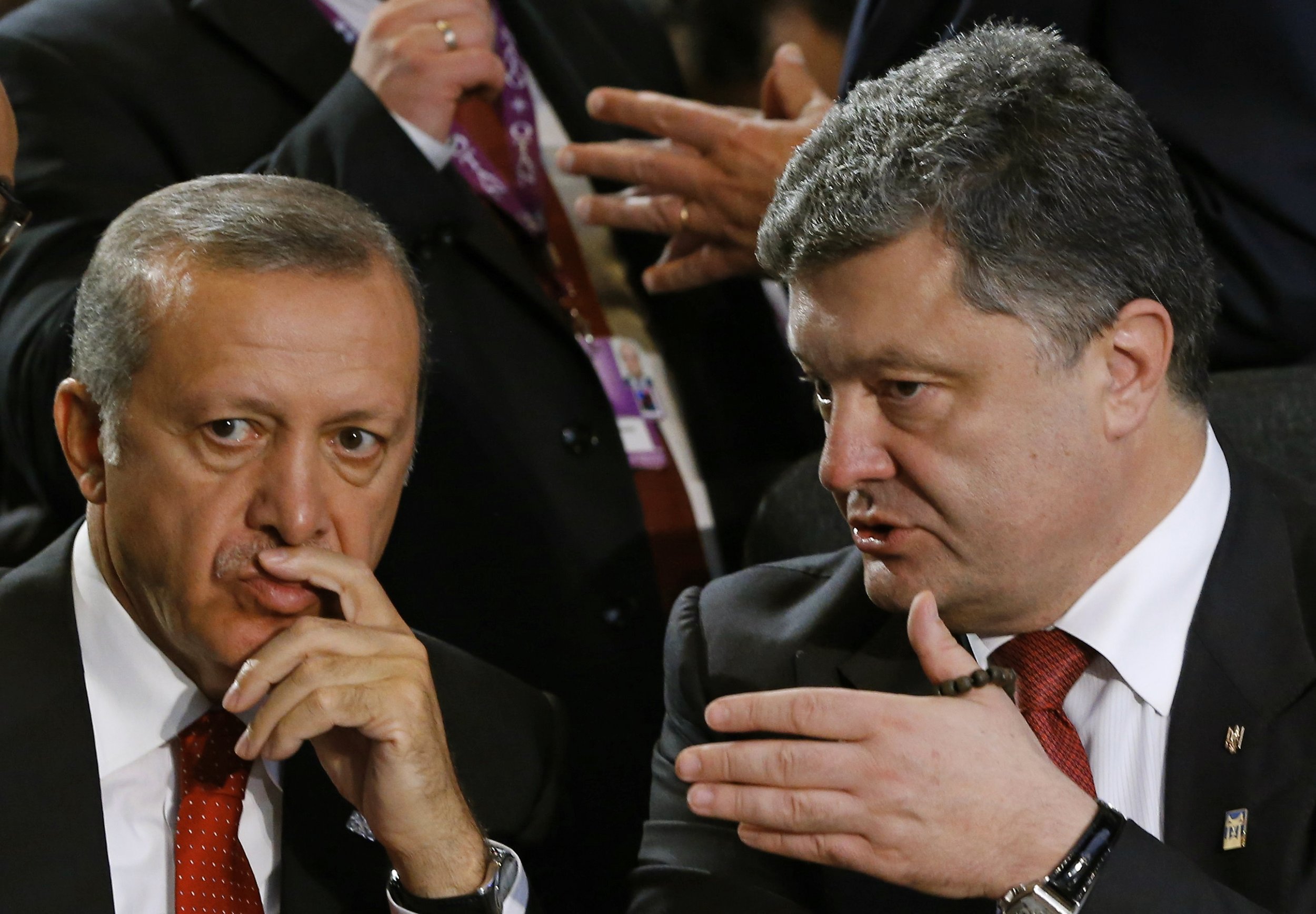
Moscow's intervention in Syria may have achieved its objective of bolstering the Assad regime, at least temporarily, against various opposition groups in Syria's civil war, but it has complicated its strategic position in the Black Sea by poisoning relations with Ankara. Moscow's repeated violations of Turkish airspace in its Syria campaign, the Turkish shoot-down of a Russian warplane, and the Kremlin's economic sanctions and threats of retaliation have spoiled a decades long successful effort by Moscow to court Ankara. In the process, it has spurred Turkish security cooperation with Georgia and especially Ukraine.
During the Cold War, Turkey was NATO's strong southern anchor against the Soviet Union. Even in the 1990s, Ankara continued to treat Moscow with suspicion, evident, for instance, in its refusal to consider easing limitations for Russian conventional force deployments in the south during negotiations of the Conventional Forces Europe Flanks Agreement at that time.
Yet, following Ankara's refusal to permit American forces to enter Iraq through Turkey in 2003, Moscow saw an opening and began a careful campaign to cultivate better relations with Turkey. Turkish President Recep Tayyip Erdogan's rise to power and his pursuit of policies in the Middle East that, at times, clashed with Washington's own in the region, provided fertile grounds for Putin's efforts. So too did the growing Russian-Turkish economic relationship, with major Turkish construction projects and the prospects of Russian gas flowing to Turkey through Turkish Stream.
The advantages of this courtship for Moscow were evident following its annexation of Crimea in the spring of 2014. Ankara has always maintained a special relationship with the Tatars of Crimea, a remnant from the Tatar Khanate that ruled the peninsula under the suzerainty of the Ottoman Empire until Moscow took it after defeating the Ottomans in the late eighteenth century. The Tatars who returned to Crimea in the 1990s after Stalin forcefully resettled them in Central Asia during World War II, have been staunch Ukrainian patriots ever since. Representing at least 13 percent of the population of Crimea, they have opposed Moscow's seizure and annexation of Crimea. As a consequence, Crimean leader Mustafa Djemilev has been banned from returning to Crimea and the Tatar community has been subject to severe repression.
Moscow's annexation of Crimea prompted sanctions from the West on Russian officials and businessmen, and the West also threatened sanctions for foreigners conducting their business there. The official Turkish reaction to the annexation was mild. While refusing to recognize the annexation and calling for the protection of the Crimean Tatars, Ankara chose not to criticize Moscow's actions. Turkey didn't impose sanctions on Russia, and Turkish airlines even reestablished flights to Simferopol, the regional capital of Crimea. Putin's decade-long attention to Ankara and especially Erdogan had paid off.
The fact that Moscow and Ankara were pursuing different policies in Syria was not an impediment to this Russian-Turkish rapprochement. Since the start of civil unrest in Syria in 2011, the Kremlin has firmly backed the Assad regime, and Ankara has supported the Turcoman ethnic group in northern Syria and then various Islamic groups. But Moscow's intervention in Syria, last fall, changed the equation for two reasons. First, the Kremlin decided to demonstrate its contempt for NATO by repeatedly violating Turkish airspace during its bombing runs. Second, despite its intention to take the war to the Islamic State of Iraq and the Levant, Moscow's bombing campaign was directed more against moderate opposition groups in Syria's northwest, including the Turcomans.
Moscow violated Turkish airspace three times, despite Turkish diplomatic complaints and warnings. The fourth time, on November 24, the Turks shot down the Russian warplane.
Moscow realized that it had overplayed its hand and tried to downplay the incident in its official reaction. Both Presidential Spokesman Dmitry Peskov and Defense Minister Sergey Shoigu denied publicly that the Turks had taken their plane out. But when Erdogan took credit for defending Turkish airspace, the Kremlin reacted sharply with economic sanctions, threats of military retaliation, and the deployment of Russia's most advanced anti-aircraft systems and warplanes to Syria's northern border with Turkey. Moscow then dared the Turks to act again by sending planes into Turkey's airspace.
Putin's declaration of victory in Syria and partial drawdown there has reduced the danger of a direct Russian-Turkish military confrontation. With his prestige high, Putin has less need get even with Ankara for last November's embarrassment. But the damage has been done.
The consequences are evident in the Black Sea. Less than two months after the shoot-down, Ukrainian National Security and Defense Secretary Oleksandr Turchynov visited Ankara to discuss defense industry cooperation and Foreign Minister Pavlo Klimkin followed within weeks. Turkish Prime Minister Ahmet Davutoglu traveled to Kyiv in early March and Ukrainian President Petro Poroshenko returned the favor with a stop in Ankara shortly thereafter.
The tangible result of these visits has been the blossoming of the Ukraine-Turkish defense relationship. Besides burgeoning cooperation in defense industries, Ukraine and Turkey naval forces conducted joint training in the Black Sea last week to ensure their ability to operate together "in accordance with NATO standards." This followed an initial naval exercise in the Sea of Marmara in March. At the same time, Turkey's policy coordination with Georgia and Azerbaijan is growing. All these countries share a major interest in thwarting Moscow's revanchist policies. Moscow's unnecessarily provocative policy in Syria has encouraged Turkey to play a much more active role in this enterprise. This certainly satisfied
John E. Herbst is Director of the Atlantic Council's Dinu Patriciu Eurasia Center. He served as US Ambassador to Ukraine from 2003 to 2006.
Uncommon Knowledge
Newsweek is committed to challenging conventional wisdom and finding connections in the search for common ground.
Newsweek is committed to challenging conventional wisdom and finding connections in the search for common ground.
About the writer
To read how Newsweek uses AI as a newsroom tool, Click here.








